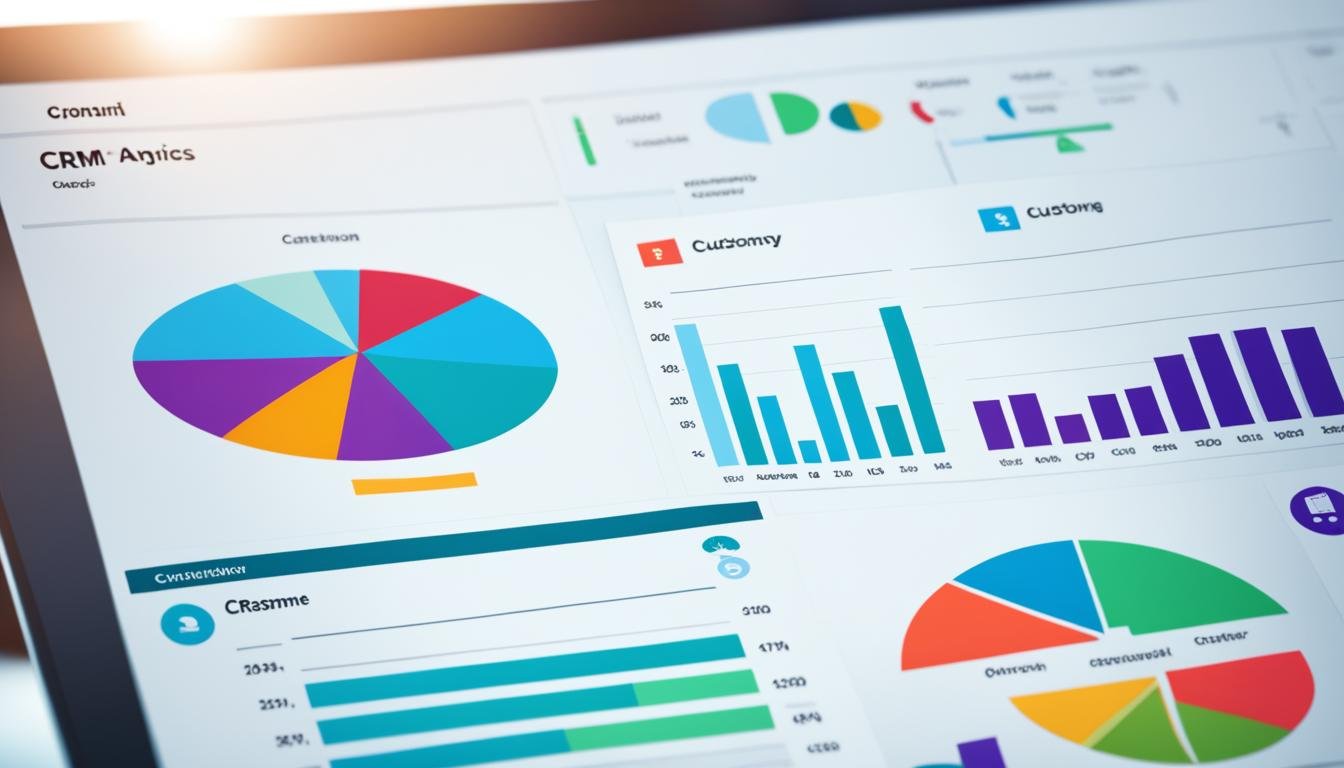Effective CRM data management is key to connecting well with customers at every step. Bad data in CRM systems can cause wrong insights, missed chances, and hurt customer relationships. It’s vital to keep your CRM database and organize customer data well to boost customer satisfaction, increase sales, and stay ahead.
Today, CRM systems face a big challenge with the rise of Big Data. They handle huge amounts of data, from structured info like names and addresses to unstructured data like social media posts and videos. Good CRM data management uses advanced methods to keep info up-to-date and correct.
Table of Contents
The Importance of CRM Data Management
Effective CRM data management is key for businesses to handle customer data well. Bad CRM data quality can cause many problems, like wrong reports and marketing mistakes. It can also slow down sales and break software links. But, good CRM data management brings big wins, like happier customers, better sales, and higher marketing returns.
Challenges of Poor Data Quality
Wrong or missing customer info can hurt businesses a lot. IBM says bad data costs US businesses $3.1 trillion yearly. Also, companies lose 12% of their possible revenue because of poor data quality. Even in CRM systems, 10-25% of B2B contacts have big errors, and people making data entries often make 1% mistakes.
Benefits of Effective Data Management
- Improved customer satisfaction and retention: Companies that focus on customer experience have 1.5 times more engaged customers. Good data management can also increase customer retention by 5%.
- Enhanced sales performance: Data-driven marketing can boost ROI by up to 5 to 8 times. Companies using data analytics make decisions 5 times faster.
- Increased operational efficiency: Automating data entry and cleaning can save companies a lot of time. Training teams on CRM data management is key for handling data well.
- Better marketing ROI: Customers expect personalization, and accurate data is a must. 74% of customers get upset when websites don’t personalize for them.
- Improved decision-making and compliance: Data-driven companies are 6% more profitable than those not using customer data well. Keeping data up-to-date is important, as it decays by 30% yearly.
By tackling data management challenges and using best practices for CRM data management, companies can make the most of their customer data. This leads to sustainable growth.

CRM Data Management Best Practices
To get the most from your CRM, follow best practices for managing data. This means setting clear CRM data management policies, cleaning and standardizing data, and using strong data governance rules. These steps help avoid mistakes, keep data correct, and follow the law.
Define CRM Data Management Policies
First, make detailed CRM data management policies. These should cover how to collect, store, and use data. They should talk about keeping data safe, who can access it, and how to keep it accurate. Having these policies makes sure your CRM data is right, current, and follows the law.
Cleanse and Standardize Data
Check your CRM data often to fix data cleansing and standardization problems. Get rid of duplicate entries, fix formatting, and make data entry rules. Doing this keeps your data good quality and makes reports and analysis trustworthy.
Implement Data Governance
Put a strong data governance plan in place to manage your CRM data. This means picking data stewards, figuring out who owns the data, and setting quality controls. Good data governance means everyone is accountable, things are consistent, and you follow the law.

“Mastering CRM data management lays a strategic foundation for informed decision-making, efficient operations, and successful customer engagement.”
By using these CRM data management tips, you can stop mistakes, keep data right, and follow the law. This makes the most of your CRM and helps with smart decisions, smooth operations, and good customer service.
Optimizing Data Collection and Entry
Having high-quality customer relationship management (CRM) data is key for making smart decisions and giving customers personalized experiences. To do this, focus on making your CRM data collection better and knowing which data is most important.
Tightening Data Collection Processes
Improving CRM data quality starts with stopping bad data from getting in. Use proper form checks, offer pre-set choices, and make data entry easy. This makes sure your CRM stays accurate and current.
Identifying Critical Data Fields
Not all CRM data is the same. It’s important to know which data is most important for personalizing, prioritizing sales, and making informed decisions. This includes things like customer contact info, what they’ve bought, how they like to be contacted, and other important details. Focusing on these fields makes sure your CRM has the best info to help your business.
Using automation and data checks in your CRM data collection makes data better and more consistent. These tools spot and stop mistakes, like duplicates or missing info, keeping your CRM data reliable.

“Businesses need to clean and regularly update their CRM data to maintain accuracy, completeness, and up-to-date information.”
By making your CRM data collection better and focusing on key data, you create a strong CRM system. This supports your business goals and improves the customer experience.
CRM Data Management: Streamlining and Automation
Managing your CRM data well means making it easier and automated. This way, you can avoid the problems of doing things by hand. It also makes sure your data is always good quality across your company.
Automating Data Entry and Cleansing
Automating data entry and cleansing is a key step in managing CRM data. CRM data automation cuts down the time and effort needed to keep customer records right. It uses technology to avoid manual entry, reduce mistakes, and keep data formats the same in your CRM.
Also, making data cleansing automated is key. It finds and fixes data errors, duplicates, and inconsistencies. This keeps your customer info reliable, which helps in making better decisions and improving customer experiences.
Training Teams on Data Management
Training your team on CRM data management is also vital for success. Teaching them about CRM data management and best practices encourages a focus on data-driven decisions in your company.
By teaching your teams about the value of good data management, they’ll know how to keep data quality high. This helps your CRM efforts succeed.

“Implementing data automation and training your team on data management best practices are critical steps in optimizing your CRM data and driving better business outcomes.”
Conclusion
Effective CRM data management is key for businesses to get the most out of their CRM software. It helps deliver great customer experiences, boost sales, and stay ahead in the competition. By setting clear data management rules, cleaning and standardizing data, and automating tasks, companies can fully use their CRM’s potential. This leads to better business performance through data-driven choices.
Keeping your CRM data accurate, relevant, and complete is vital for finding new opportunities and building strong B2B relationships. Regular data cleaning, using automated workflows, and keeping data consistent and secure helps streamline sales and marketing. It also leads to smarter, data-based decisions.
Investing in strong CRM data management is crucial for optimizing your CRM and driving lasting business growth. By focusing on data quality and using comprehensive data management methods, you can unlock your CRM’s true value. This puts your business in a strong position for success in the ever-changing B2B market.



